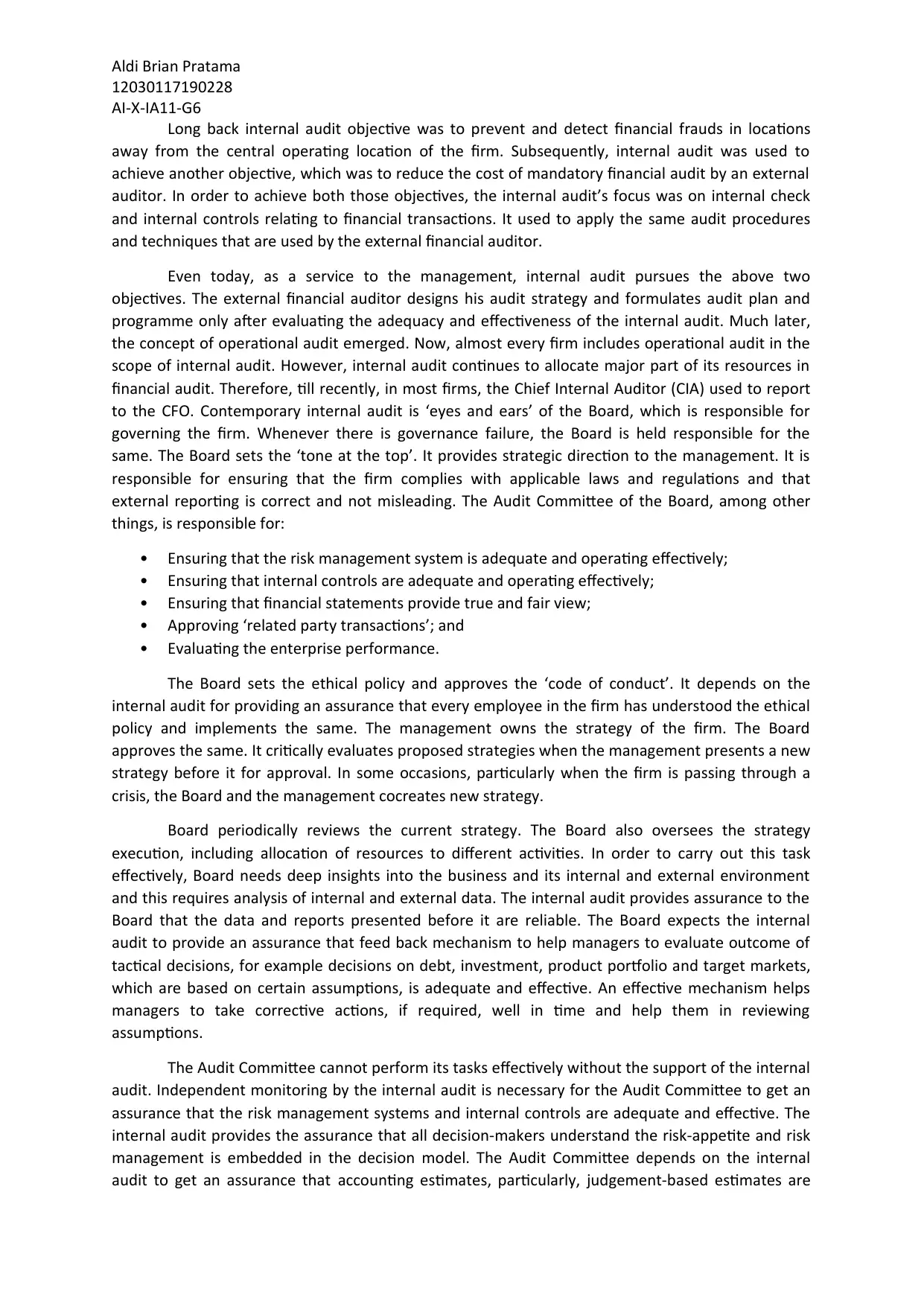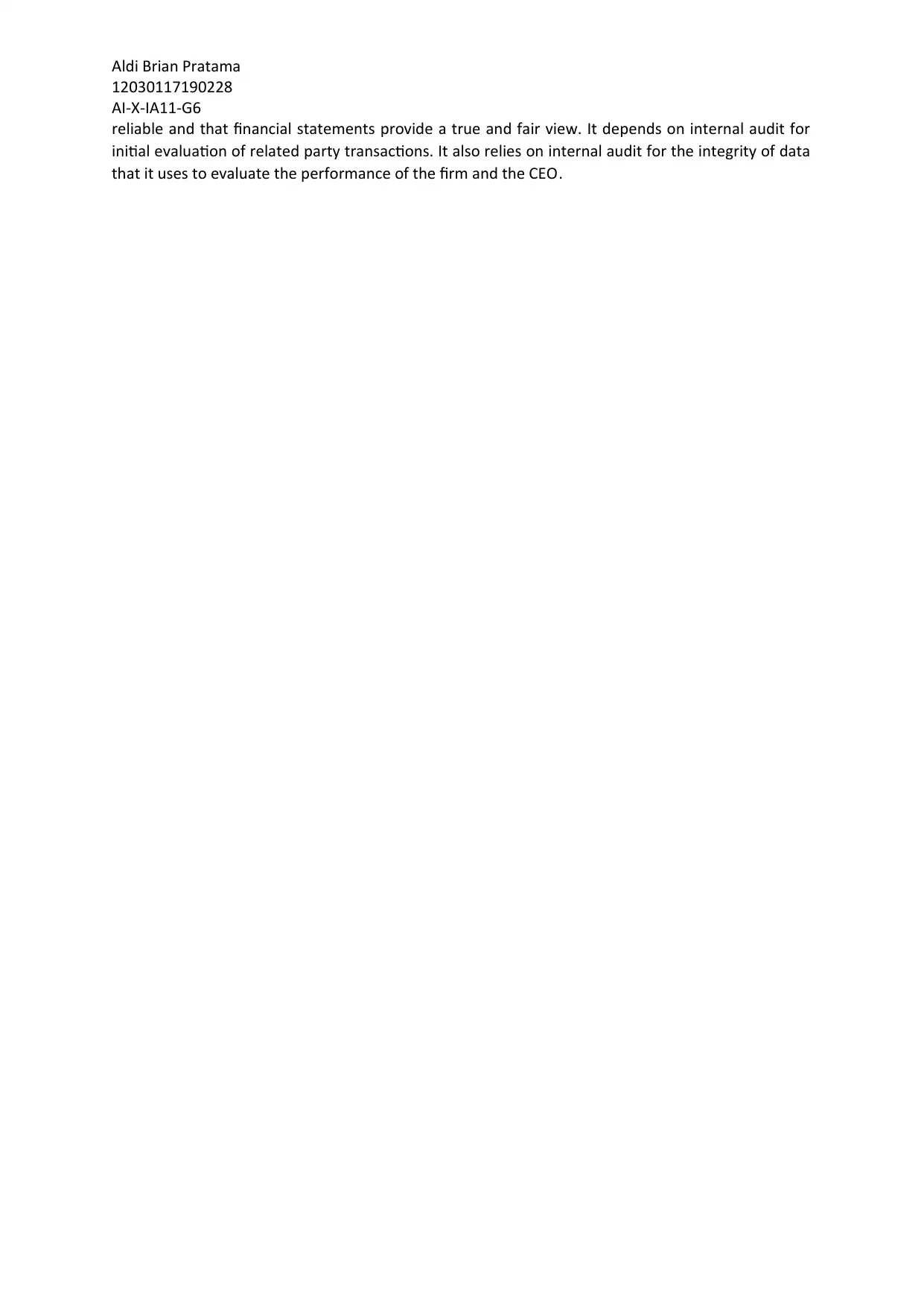Internal Audit: Role in Corporate Governance and Finance
VerifiedAdded on 2021/05/25
|2
|729
|132
Report
AI Summary
This report delves into the pivotal role of internal audit within the framework of financial governance. Initially focused on preventing financial fraud and reducing external audit costs, internal audit has evolved to encompass a broader scope, including operational audits. The report highlights the significance of internal audit in supporting the Board of Directors by ensuring compliance with laws and regulations, the reliability of financial statements, and the effectiveness of risk management systems. It emphasizes the critical support internal audit provides to the Audit Committee in overseeing risk management, internal controls, and the accuracy of financial reporting, including accounting estimates and related party transactions. The report also underscores the importance of internal audit in providing assurance on the reliability of data used for strategic decision-making and the adequacy of feedback mechanisms for tactical decisions, thereby contributing to effective corporate governance and financial integrity. The report emphasizes the evolution of internal audit from focusing on financial transactions to providing assurance to the board and audit committee on various matters related to governance and risk.
1 out of 2








![[object Object]](/_next/static/media/star-bottom.7253800d.svg)